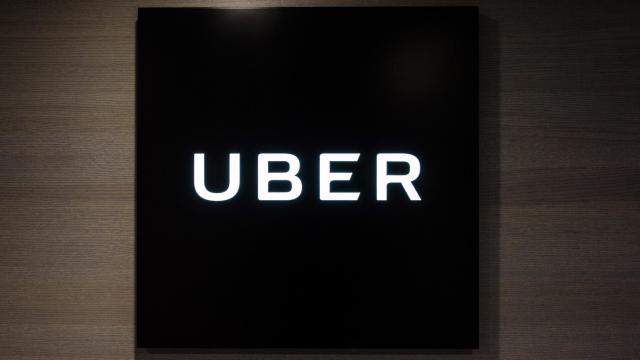Uber was ordered to pay more than $US1.1 ($1.4) million on Thursday as part of an arbitration case brought on by a passenger with vision loss saying that she — and her guide dog — were repeatedly denied rides by drivers working for the ride-hailing giant.
The woman at the centre of the case, Lisa Irving, first filed a complaint against Uber back in 2018 after either being either harassed by drivers who didn’t want to transport her and her dog — who is granted access rights under the Americans with Disabilities Act — or having her requests for rides ignored altogether. Per the ruling, Irving faced this treatment from drivers in San Francisco on 14 different occasions before finally taking the company to court. Thanks to this decision, she was awarded $US324,000 ($426,092) in damages plus roughly $US805,000 ($1,058,656) sent her way for attorney’s fees and legal costs.
That harassment took a few different forms, according to the suit. It describes that one driver “brought her to tears,” and caused her to miss her shift at work, while another “stranded her and her friend on their way to Christmas Eve church services, leaving them in the rain.” Another driver grabbed Irving’s phone and “refused to return it,” the suit claims, and later filed a police report against her. Another simply refused to talk to Irving at all.
Before filing the suit, Irving did try filing complaints with Uber directly, and the company assured her that these incidents would be investigated. But as the suit alleges, Uber’s investigators were sometimes trained “to coach drivers to find non-discriminatory reasons for ride denials.” In other words, they were told that they could continue to deny Irving her rides, if they could find a sufficiently non-discrimination-y way to frame it.
During the initial case, Uber’s defence was that it’s ultimately not responsible for any discrimination on its driver’s part, since they’re technically considered independent contractors, and not employees — a fact that the company has done its darnedest to codify. Regardless, the judge overseeing the case, Rudolph Gerber, found that Uber was responsible for their conduct when that conduct violates the ADA under federal law regardless.
Ultimately, Gerber’s ruling states, the Department of Transportation deems that the making a transportation service accessible is a responsibility that falls on the transportation system itself, regardless if that system happens to work with contractors to do the dirty work of actually driving people around.
“Whether its drivers are employees or independent contractors, Uber is nonetheless subject to the ADA as a result of its contractual relationship with its drivers,” the ruling reads. After all, “Uber ‘contracts’ with its drivers to provide transportation.”
Uber didn’t immediately return Gizmodo’s request for comment, but the company told MarketWatch that it “strongly” disagrees with the judge’s ruling.
“Drivers using the Uber app are expected to serve riders with service animals and comply with accessibility and other laws, and we regularly provide education to drivers on that responsibility,” a spokesperson said, noting that Uber’s “dedicated team looks into each complaint and takes appropriate action.”
